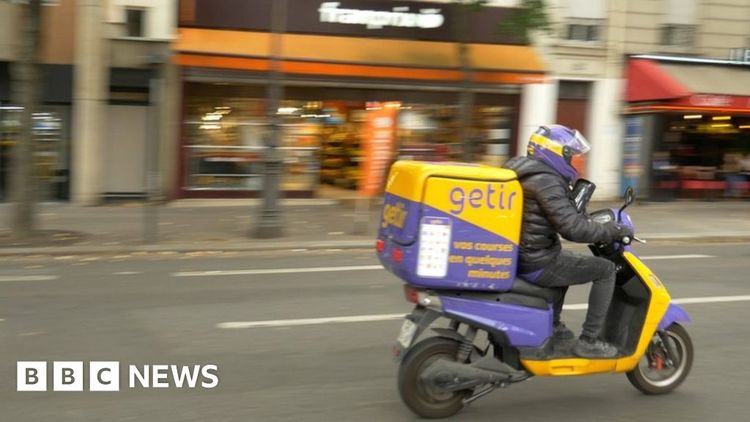Fast grocery firms doomed by French dark store ban

Urban hubs for storing and distributing goods surged in number across France following the widespread adoption of virtual grocery shopping propelled by the Covid pandemic.

Devastated by significant financial setbacks and unfriendly new regulations, entrepreneurs running France's formerly prosperous "dark stores" are permanently closing their businesses.
Getir and Gorillas, renowned brands, no longer exist in France as of Wednesday.
During the Covid lockdown, the central city warehouses that offered quick deliveries of popular groceries flourished.
However, due to concerns raised by residents and worries about creating an imbalance in the market, the establishments previously known as dark stores are now categorized solely as storage facilities instead of retail shops.
Effective from 1 July, the recent regulations have been implemented, prompting the leading players in the realm of "speedy commerce" - Getir, a company hailing from Turkey, and Flink from Germany - to declare their withdrawal from the French market in advance.
In a press release, Getir, the owner of Gorillas and Frichti, expressed that their choice was "unavoidable due to the challenging economic situation, an unwelcoming regulatory atmosphere, and the lack of interested purchasers".
The liquidation of Getir and Gorillas, two delivery services, has been formally declared by a commercial court in Paris, resulting in the unfortunate dismissal of approximately 1,300 employees. However, Frichti has been granted an additional three months to explore potential buyers for their business. The court's decision regarding Flink's future will be announced later in the summer.
During its prime, Paris boasted 80 sites solely supervised by 12 distinct operators. Altogether, approximately 2,200 individuals were employed in this industry, with a majority securing permanent job positions.
The withdrawal brought great joy to the authorities in Paris. Deputy Mayor Emmanuel Grégoire expressed his satisfaction, stating that the era of shadowy establishments has come to an end, highlighting their exploitative and profit-driven actions.
Usually, dark stores exhibited an empty facade facing the street, merely featuring the company's name on a semi-transparent window. Within, there were rows of frequently purchased products, neatly arranged in packages and ready to be handed over to delivery personnel.
However, residents voiced their discontent about the persistent sound generated by groups of couriers, whereas urban designers expressed concerns that this approach could diminish the vibrancy of communal areas and give rise to a population that mainly stays at home and relies on online shopping.
In France, it will still be feasible to have food delivered through online platforms like Uber Eats and Deliveroo, which collaborate with grocery stores.
Opponents of "rapid retail" argue that it is paradoxical that employees working in concealed storefronts, with their full-time employment agreements, receive better protection compared to the independent couriers hired by online platforms.









































